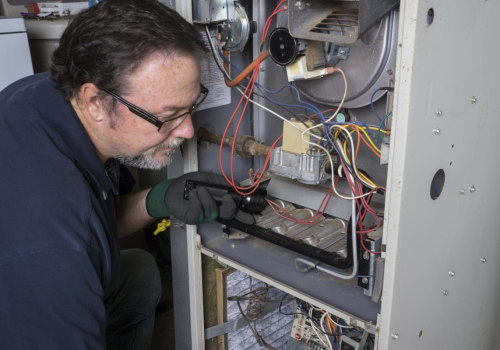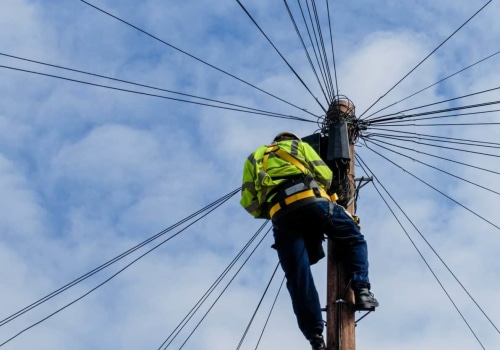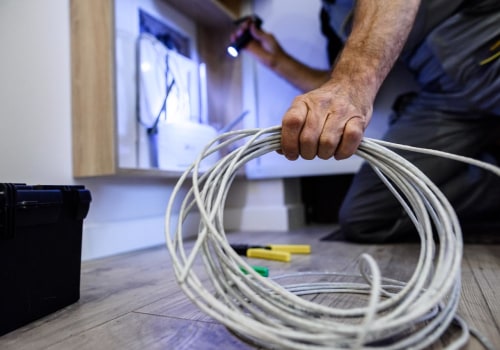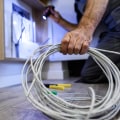When it comes to network cabling in Baltimore, Maryland, there are a few important things to consider. One of the most crucial aspects is obtaining the necessary permits for installation. As an expert in the field, I have seen firsthand the impact that proper permitting can have on a network cabling project. In this article, I will discuss the importance of obtaining permits for network cabling installation in Baltimore and why it should not be overlooked.
The Basics of Network Cabling
Before we dive into the specifics of permits, let's first understand what network cabling is and why it is necessary.Network cabling refers to the physical infrastructure that connects devices, such as computers and servers, to create a network. This includes cables, connectors, and other hardware that allow for data transmission between devices. In today's digital age, network cabling is essential for businesses and organizations of all sizes. It allows for efficient communication and data sharing, which is crucial for day-to-day operations. Without proper network cabling, businesses can experience slow internet speeds, dropped connections, and other technical issues that can hinder productivity.
The Role of Permits
Now that we understand the importance of network cabling, let's discuss the role of permits in the installation process.A permit is a legal document issued by the local government that grants permission to perform certain activities, such as construction or installation. In Baltimore, permits are required for any type of construction or alteration to a building or property. When it comes to network cabling installation, permits are necessary because it involves making changes to a building's infrastructure. This can include drilling holes, running cables through walls or ceilings, and installing equipment. Without proper permits, these activities can be considered illegal and can result in fines or even legal action.
The Importance of Compliance
Aside from avoiding legal consequences, obtaining permits for network cabling installation is crucial for compliance purposes.In Baltimore, there are specific building codes and regulations that must be followed when it comes to network cabling. These codes ensure that the installation is done safely and meets certain standards. For example, there are regulations on the type of cables that can be used, the distance between cables, and the placement of equipment. These regulations are in place to prevent potential hazards, such as fire or electrical issues. By obtaining permits, you are ensuring that your network cabling installation is compliant with these codes and regulations.
The Permitting Process
Now that we understand the importance of permits for network cabling installation, let's discuss the process of obtaining them.The first step is to determine which permits are required for your specific project. This can vary depending on the scope of work and the location of the installation. In Baltimore, there are two types of permits that may be required for network cabling installation: a building permit and an electrical permit. A building permit is required for any structural changes or alterations to a building, while an electrical permit is necessary for any electrical work involved in the installation. Once you have determined which permits are needed, you will need to submit an application to the Baltimore City Department of Housing and Community Development (DHCD). The application will require detailed information about the project, including plans and specifications.
It is important to provide accurate and thorough information to avoid delays in the permitting process. After submitting the application, it will go through a review process by various departments within DHCD. This can take anywhere from a few days to a few weeks, depending on the complexity of the project. Once the permits are approved, you will receive a permit card that must be displayed at the job site.
The Consequences of Skipping Permits
Some may argue that obtaining permits for network cabling installation is a hassle and can slow down the project. However, the consequences of skipping permits can far outweigh any inconvenience.Without proper permits, you run the risk of facing fines, legal action, and even having to redo the installation if it does not meet compliance standards. Additionally, if you plan on selling or leasing your property in the future, you may run into issues if the network cabling was not installed with proper permits. Potential buyers or tenants may request proof of permits and compliance, and without them, it can affect the value and marketability of your property.







